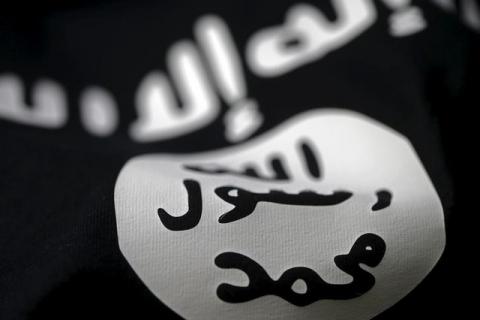Advertisement
Islamic State names new leader of Nigeria's Boko Haram
CAIRO (Reuters) - Islamic State has named a new leader of Boko Haram, the Nigerian militant group which last year swore allegiance to it.
Abu Musab al-Barnawi was named Islamic State's governor for West Africa in a two-page interview in its weekly magazine, al-Naba, which was circulated late on Tuesday.
Nigerian President Muhammadu Buhari, a former military ruler who took office last year, has made it a priority to defeat Boko Haram, which has tried to create a state adhering to strict sharia law in the northeast during a seven-year insurgency.
Boko Haram controlled a swathe of land in northeast Nigeria around the size of Belgium at the end of 2014 but was pushed out by Nigerian troops, aided by soldiers from neighbouring countries, early last year.
In the interview, al-Barnawi said Boko Haram was "still a force to be reckoned with" and that it had been receiving new recruits.
Despite having been pushed out of most of the territory it controlled, Boko Haram has carried out suicide bombings in northeast Nigeria and neighbouring Cameroon, Niger and Chad, focusing on busy public areas such as markets and mosques.
Fulan Nasrullah, a security analyst, said al-Barnawi had been a senior figure within Boko Haram who was previously the group's military commander.
The Islamic State publication did not mention Abubakar Shekau, who was the group's leader and represented the Nigerian jihadists in videos during an insurgency that has killed about 15,000 people and displaced more than two million.
Shekau, whose death has been reported on numerous occasions by the army only for him to reappear in videos, was last seen in a video circulated in March in which he seemed to suggest he was ailing and Boko Haram was losing its effectiveness. A video emerged the following week saying there would be no surrender.
In June, a senior U.S. general said Boko Haram had fractured internally, with a big group splitting away from Shekau over his failure to adhere to guidance from Islamic State. The Nigerian group swore allegiance to Islamic State, based in Syria and Iraq, in March 2015.
That assessment came days after U.S. officials said they had seen no evidence that Boko Haram had so far received significant operational support or financing from Islamic State militants, concluding the loyalty pledge had so far mostly been a branding exercise.
(Additional reporting by Alexis Akwagyiram in Lagos; Editing by Janet Lawrence)



















Add new comment